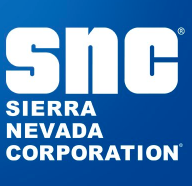No two industries are the same. Every industry and field demands a unique combination of skills, temperament, and ambition. That’s also why no two interviews are the same. Even within the engineering field, a tech startup interview is going to vary widely from a telecommunications interview.
This is especially true in the aerospace and defense industry. Companies like Sierra Nevada Corporation work on everything from spacecraft for NASA to firefighting airplanes for state governments. The breadth and importance of their work puts a major onus on candidates to show that they’ve got the right qualities and skills to succeed in that environment.
To get the official lowdown on how to make it through one of these challenging interviews, we spoke with Abby, a recruiting expert at SNC, about what every candidate should be doing in A&D interviews.
1. Showcase Your Practical Skills
“What’s different about the aerospace and defense industry is that they’re looking for really practical skills,” Abby says.
The SNC team works on products that require a vast range of software, hardware, and other technical skills, so they’re always looking for people with a background in these fields. Whether you’re a bio major with a passion for programming or a full-fledged electrical engineering major, your skills will be sharpened and put to work on real projects, right away.
“The full expectation is that they’ll be actively contributing to whatever team they’re on and doing the work that the other engineers are doing as well. They all do a job on the team. They’re not the classic intern getting coffee for people,” Abby explains.
2. Show Your Willingness To Learn
If working alongside actual rocket scientists makes you feel intimidated, don’t worry. The number one thing the SNC team looks for beyond a base of technical knowledge is the willingness to learn more.
That’s why curiosity and desire to learn is so important. Nobody truly knows how to be an aircraft engine engineer or a deep-space habitat project manager until they’ve done the job.
“We’re looking for candidates who, to be honest, outright express a willingness to learn,” Abby says. “Candidates who really want hands-on experience, and to contribute to a team.”
So, it’s not “I don’t know how to build a spacecraft.” It’s “I don’t know how to build a spacecraft, yet.”
3. Answer Behavioral Questions In An Adaptable Way
Behavioral questions are common in many interviews, but they are especially important for a position in the fast-paced aerospace and defense industry.
“Ultimately, we want to know that students are quick on their feet and can adapt to different situations,” Abby says. “We are really fast-paced and innovative, and one of the things we promise is fast turnaround for customers.”
Quick turnaround and unrelenting innovation require a constant shifting of priorities, intelligent time management, and well-timed communication.
That’s why SNC recruiters and hiring managers are concerned about candidates who seem to have overly rigid thought processes, resistance to change, and an inability to improvise.
4. Be Prepared To Be Evaluated On Your Soft Skills, Too
People skills are important, whether you are an engineer or a communications representative.
Abby explains, “Something I’ve talked about with a couple hiring managers is that for a long time what engineers could rely on was: ‘Oh, I’m an engineer. I don’t have to have any communication skills or people skills.’”
The stereotype of engineers as uncongenial or awkward, Abby says, can lead engineers to believe people skills aren’t necessary.
“We’re looking for people who are communicative, who are willing to be a part of a team, and [hiring managers] are moving away from the stereotypical engineer who can’t make eye contact,” Abby says.
Luckily, many people who work in engineering and computer science are friendly and loquacious. Those soft skills come in handy when working in an innovative, collaborative organization like SNC.
5. Let Them Know How You Work On A Team
“Showcasing strong communications skills and a willingness to learn are especially important in our environment.” Abby says, “It’s really collaborative [here], and so being a part of a team is essential.”
Teamwork requires communication, and that may mean knowing when to ask for help. In a fast-paced, collaborative environment, it’s more important that you know when to ask for help rather than try to figure something out on your own.
Your best opportunity to showcase this tendency is by giving examples of positive, savvy collaboration during your behavioral question answers. Feel free to reference times when you were in a student organization or working on a group project, because that can also demonstrate leadership skills.
Want to learn more about working in the aerospace and defense industry? Check out more stories and open opportunities at Sierra Nevada Corporation on WayUp!





